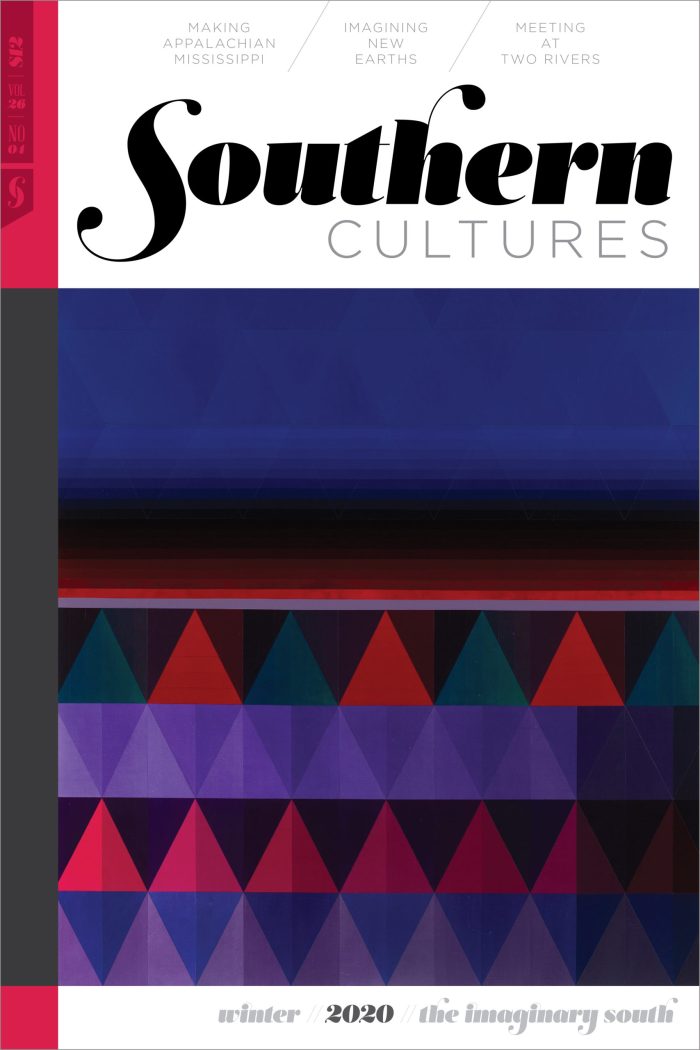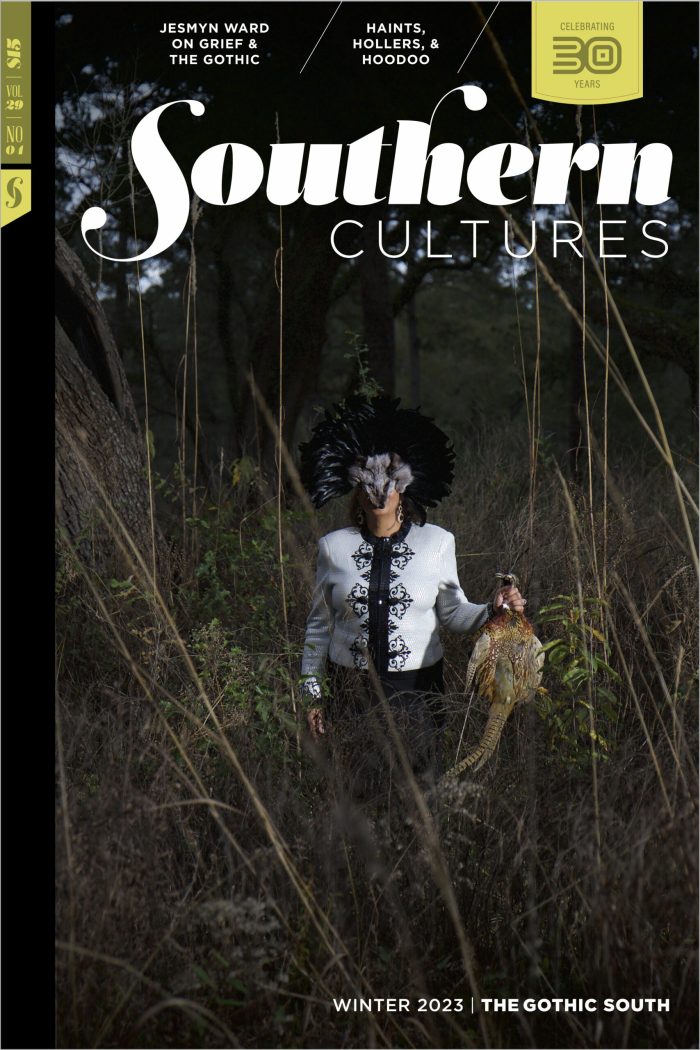Essay
by Tom Rankin
“We look to the unseen, to the power of opposites—the darkness and the light, the seen and unseen, the known and unknown, the dreams and the reality.” I can’t imagine a better time for a special issue on the Imaginary South than now. And, to be sure, we could have no better guest editor than »
Essay
by Zandria F. Robinson
My sister and I created wondrous shadow worlds for ourselves when we were girls. We were dancers on clouds and underground, or we had to lie still under floor planks with heavy boots plodding above us, or we were mean teachers in one-room schoolhouses with unruly children, or we were grandmothers being monstrously magical and »
Memoir
by Maya Doig-Acuña
I was in college when I first learned that my great-grandmother, Lydia Andrews, who my father and his siblings and cousins called Ganny, was born on the United Fruit Plantation in Puerto Limón, Costa Rica. Before Papi shared this fact with me, I knew Ganny only in small glimpses of family memory that seemed to »
Photo Essay
by Houston Cofield
“My dad spent much of his childhood in this North Mississippi landscape, and the process of wandering alone through these woods gave me a sense of connection to him that I hadn’t expected.” Early this Spring, at the beginning of quarantine, my wife and I had the privilege of living at my grandmother’s lake house, »
Essay
Juana Luz Tobar Ortega's Fugitive Poetics
by Barbara Sostaita
“Sanctuary is a direct response to raids, detentions, and deportations.” Juana Luz Tobar Ortega’s garden lies just beyond St. Barnabas Episcopal Church’s tree-lined gravel driveway, past a weather-worn statue of Jesus and a vacant parking lot where birds rest in large flocks. You have to look to find it. But here, sun-warmed tomatoes twine around »
Photo Essay
by Patricia Crosby
“I found myself wanting to find a way to bridge the gap between the Black and white experiences of living in Claiborne County, and I hoped that the photos I took might someday help others see how they might flourish, as my girls did, from immersive contact with a culture not their own.” In 1973, »
Interview
The Earthseed Land Collective and Black Freedom
by Danielle M. Purifoy
From an old wooden swing, Zulayka Santiago heard the over-revving of another truck speeding down the main road in front of her house. It was a not-too-warm day in May 2020, and we were at the tail end of our nearly hour-long interview. We tried to escape the noise by sitting near the treehouse where »
Essay
by Justin Randoph
In 1966, a retired high school principal named George Thompson Pound reached for his Rand McNally atlas. He turned to page six, took a pen, and drew off Appalachia. Starting in West Virginia, he marked along the Blue Ridge Mountains, through the Carolinas, northwest Georgia, and east Alabama. But Pound kept going. He marked past »
Photo Essay
by Cassandra Klos
Driving south on I-85 from Richmond into North Carolina, the trees begin to envelop you. Not being from here, I am seduced by that wilderness. It’s like entering an open storybook, a deep trove of mythologies and histories built into the landscape and etched into memory from the stories of others, both recent and generations »
Essay
by Joseph M. Thompson
On July 4, 1867, Augusta, Georgia’s newspaper, the Daily Constitutionalist, published the words to a new song that seemed to reflect the bitterness felt by many white southerners following the Confederate defeat. The paper printed the song’s title as “O! I’m a Good Old Rebel” above a spiteful dedication to Thaddeus Stevens, the abolitionist congressman »
Essay
by Alexis Pauline Gumbs
i. Go to Tougaloo, the meeting place of two rivers, and be quiet. Wait for the light that floats above the water where Pearl meets Mississippi and step in it. If you are too afraid to trust the light, to know yourself as more than one river, you will never know. Step in when you »
Poetry
by Tiana Nobile
Do you, too, wincewhen they whisperexotic in hushed breath,fingers pointedin your direction,your inanimate bodypoised to pummelbehind the smudged glass?Has anyone ever asked youhow it feels to be slitand stuffed from the crownof head to the tip of tail,what was once majesticnow hanging from the walllike an ornamentadorning the molding?What a parody, these people,in their tiger-striped »





